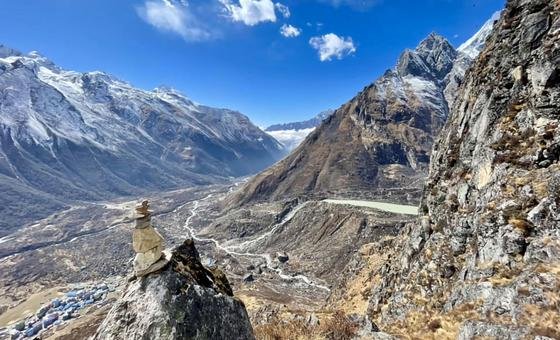A number of programs in this regard will be organized in 2025 under the leadership of the United Nations Educational, Scientific and Cultural Organization (UNESCO) and the World Meteorological Organization (WMO).
The global initiative aims to create a united effort to protect these vital water sources worldwide. These glaciers provide fresh water to more than two billion people.
Glaciers and frozen water sheets are the source of 70 percent of the world’s fresh water, but the rapid pace of their melting is creating a major environmental and human crisis.
The United Nations Meteorological Agency’s Celeste Saulo emphasized that freezing water and melting glaciers threaten the long-term water security of millions of people. Against this background, the International Year 2025 has been described as a wake-up call for the world.
In 2023, the loss of water in glaciers was the highest in the last 50 years. This is the second year in a row that the amount of frozen water has decreased in all regions of the world.
According to the WMO, Switzerland could lose 10 percent of its total glacier mass between 2022 and 2023. With 2024 set to be the warmest year on record, there is a strong push for immediate, decisive action to reverse these trends.
2025: Important initiatives
It is said that an important objective of this International Year is to underline the important role of glaciers, snow and frozen water in human life, climate and ecosystems.
Additionally, other programs, including Global Cryosphere Watch, will improve scientific understanding so that data can drive climate action.
Another priority is to consolidate a policy framework that will link glacier conservation to global and national climate action strategies.
Mobilizing financial resources to provide financial support to vulnerable people and those adapting to climate change is another important priority. Integrating youth and local communities will be important in this process.
concerted effort
The first ‘World Glacier Day’ will be celebrated this year on March 21, a day after which World Water Day is celebrated.
After that, scientists, policymakers and community leaders will gather to discuss solutions to the crisis at the ‘International Glacier Conservation Conference’ in Tajikistan in May.
Global cooperation is emphasized to address the challenge of melting glaciers, particularly in Central Asia where glacier loss is threatening water security.
According to one estimate, a thousand glaciers have melted in Tajikistan, which is about a third of the country’s total glacier volume.
In this regard, Glacier Conservation Day aims to bring together countries, organizations and individuals in a concerted effort towards a common mission.

